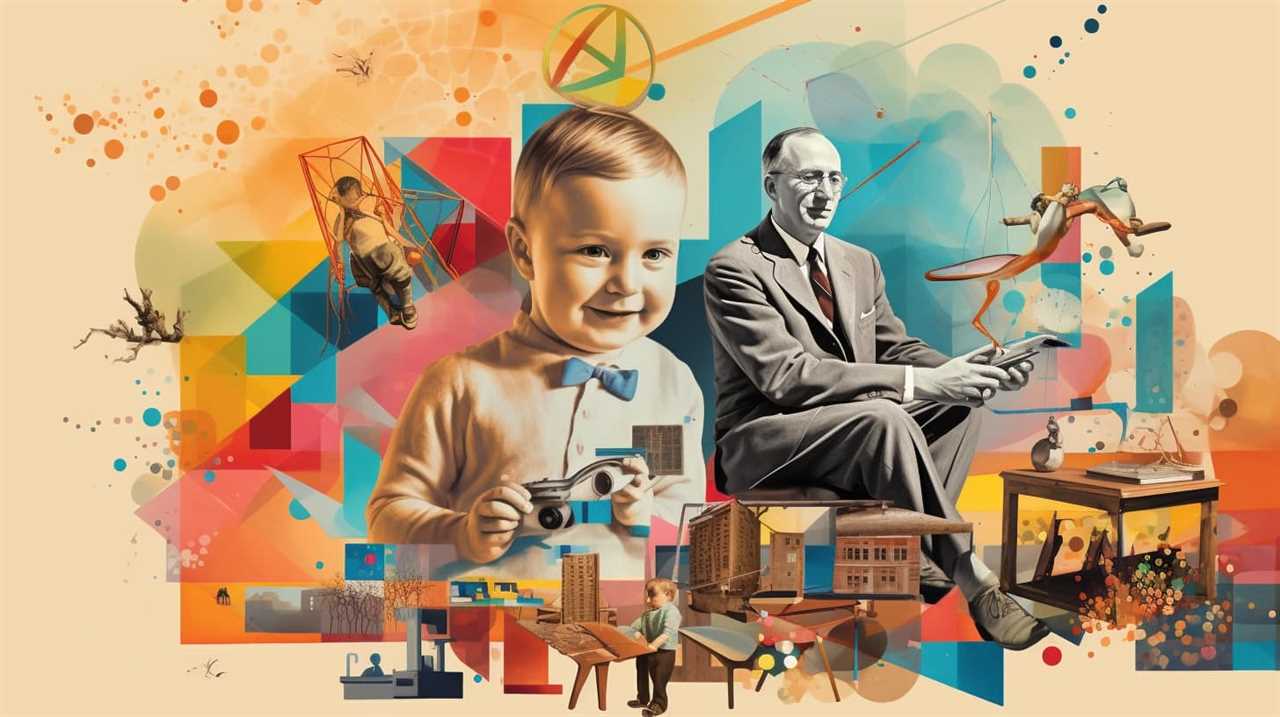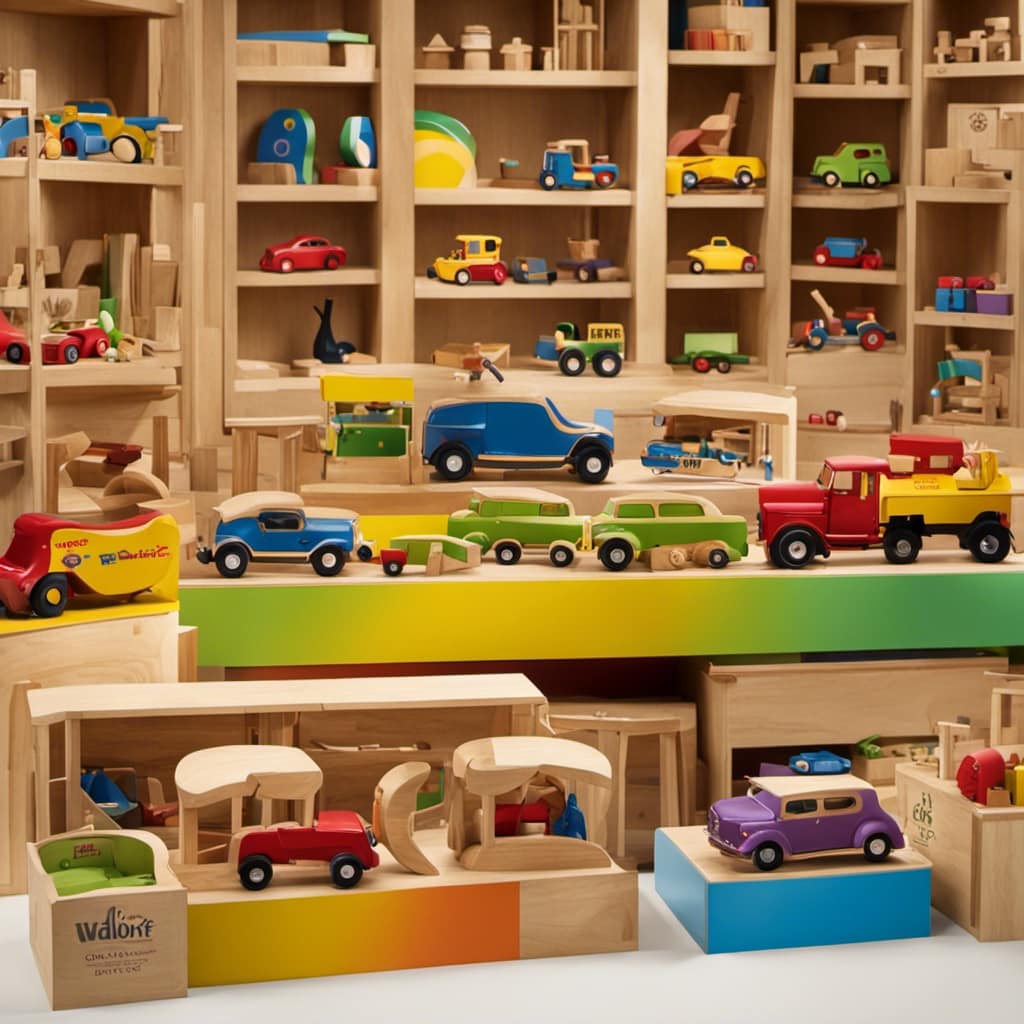As a preschool teacher, I am constantly amazed by the powerful impact that play has on enhancing both learning and development. Toys are not just for fun; they play a crucial role in promoting active learning, creativity, and problem-solving skills.
Through play, children engage in sensory experiences that enhance their cognitive development and critical thinking skills. In this article, we will explore the numerous benefits of toy play in preschool education, from improving spatial awareness to fostering social and emotional growth.
So, let’s dive in and discover the incredible world of toy play!
Key Takeaways
- Toy play in preschool education promotes hands-on learning, fosters creativity, and allows children to use their imagination and problem-solving skills.
- Engaging with toys enhances problem-solving skills, spatial awareness, visualization abilities, creativity, and imagination, leading to a positive impact on academic and personal life.
- It is important to consider toy materials and safety standards to ensure comfort, sensory development, problem-solving skills, hand-eye coordination, and to avoid harmful substances, choking hazards, and toxic chemicals.
- Toy play also contributes to the development of fine motor skills, such as strengthening hand and finger muscles, improving coordination and dexterity, and can be achieved through activities like building blocks, puzzles, and play dough. Additionally, everyday objects can also enhance fine motor skills, such as threading beads, pouring water, and using tongs.
The Power of Play: How Toy Play Enhances Learning and Development
I can see the power of toy play in enhancing learning and development. It promotes hands-on learning, fosters creativity, and allows children to use their imagination and problem-solving skills.
Toys offer a world of possibilities where children can become anyone they want to be and create anything they can imagine. This power of imagination is crucial for their cognitive and emotional development.
Additionally, toy play provides numerous sensory experiences that stimulate the senses and enhance cognitive development. Children can explore different textures, colors, and sounds, engaging their senses and making learning more enjoyable.
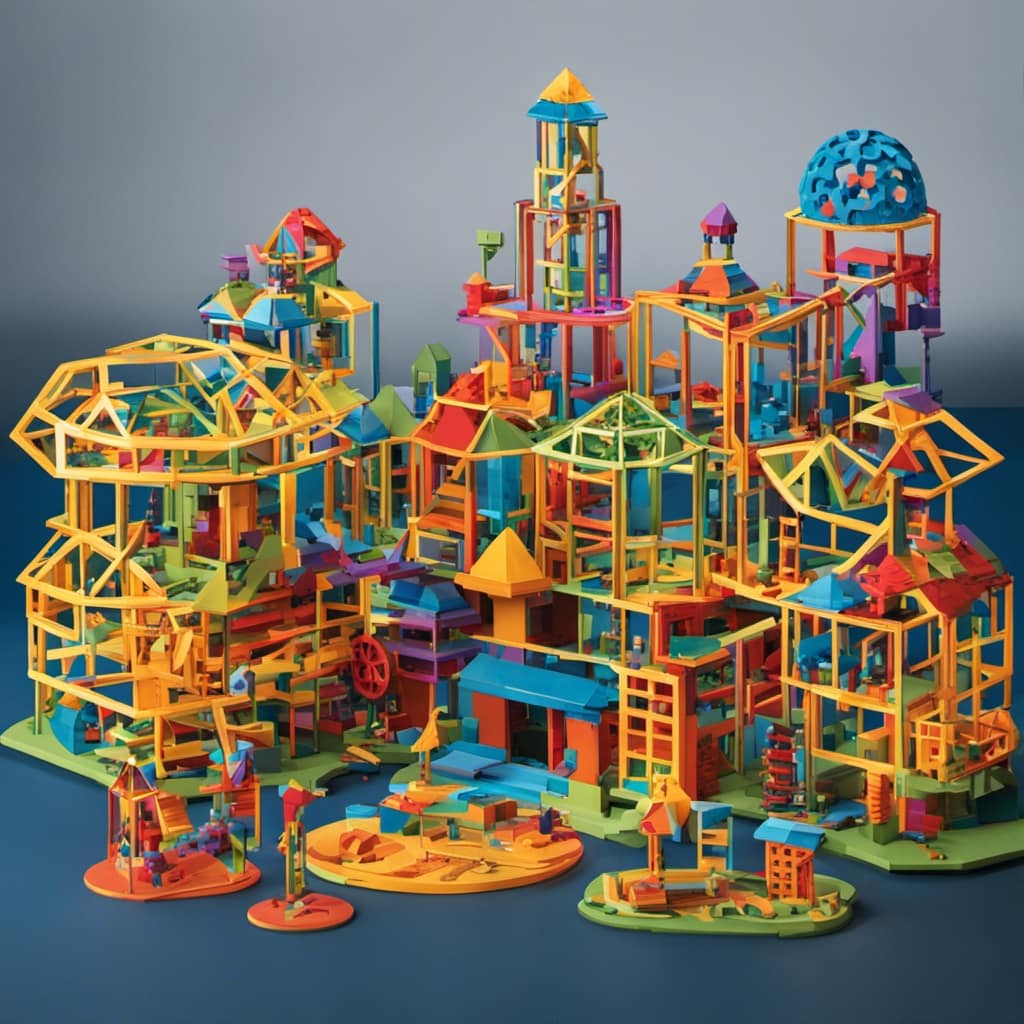
These sensory experiences not only aid in the development of their senses but also help them make connections and understand the world around them.
Overall, toy play offers a multitude of benefits, tapping into the power of imagination and sensory experiences to support children’s learning and development.
Cognitive Boost: How Toy Play Enhances Problem-Solving Skills
Engaging with different types of toys helps me develop problem-solving skills and think critically. Here are five ways toy play enhances problem-solving skills and promotes hands-on learning:
-
Problem-solving strategies: Toys provide opportunities to encounter and solve problems, encouraging me to think creatively and develop problem-solving strategies.
-
Hands-on learning: Engaging with toys allows me to actively explore and manipulate objects, fostering experiential learning and problem-solving abilities.
-
Spatial reasoning: Building with blocks or solving puzzles helps me develop spatial awareness and visualization skills, essential for solving complex problems.
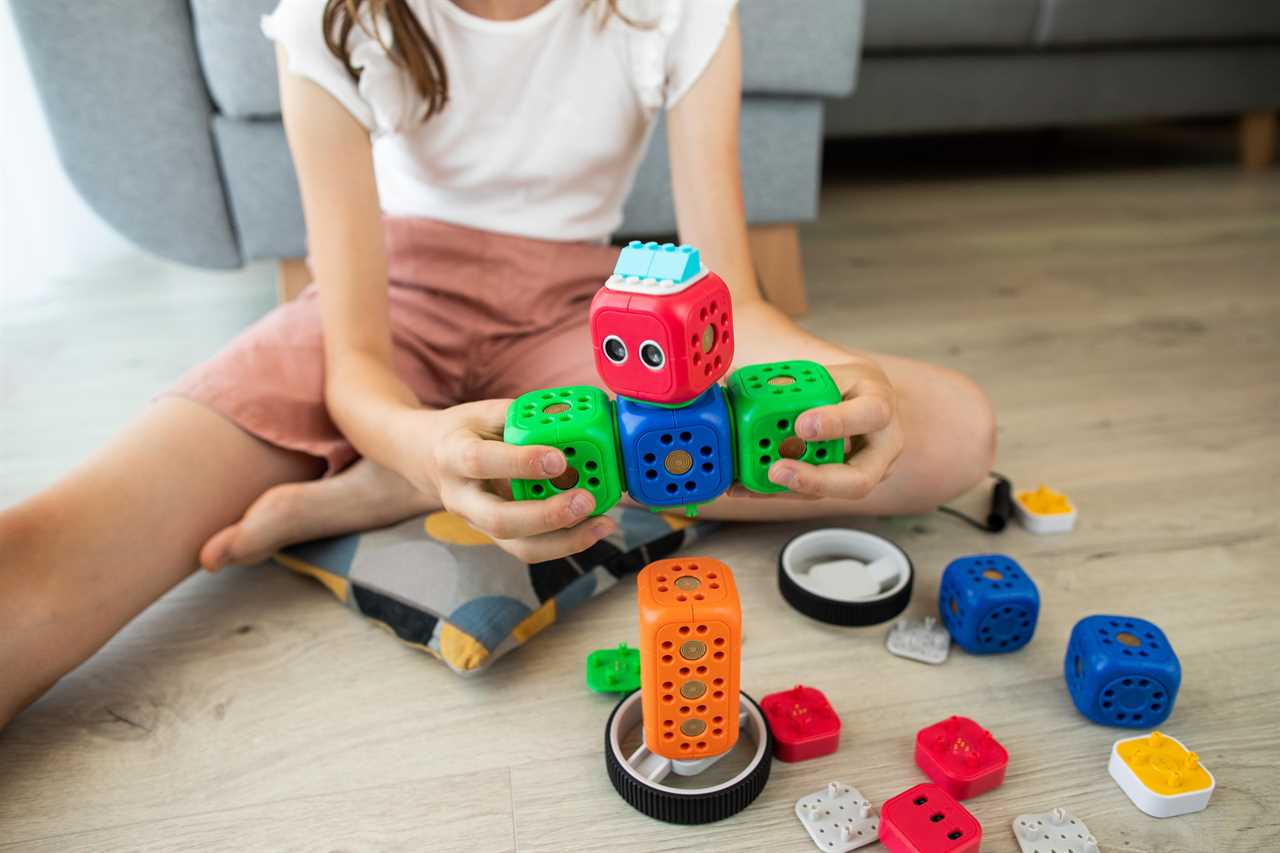
-
Logical reasoning: Toys with mechanics or puzzles challenge me to think logically and systematically, improving my ability to analyze and solve problems step by step.
-
Trial and error: Toy play encourages experimentation and learning from mistakes, teaching me resilience and the importance of trying different approaches to solve problems.
Through toy play, I can enhance my problem-solving skills and develop a critical mindset, setting a foundation for success in various aspects of life.
Spatial Skills: The Impact of Toy Play on Visualization Abilities
Exploring various types of toys helps me develop a strong ability to visualize and understand spatial relationships. Spatial reasoning is an essential skill that enables us to mentally manipulate objects and understand how they fit together in space.
Toy play provides a perfect platform for developing these skills. Building blocks, puzzles, and construction sets require us to manipulate pieces and visualize how they fit together to create a structure. This promotes problem-solving skills as we figure out the best way to complete the task.
Through toy play, we learn to understand the relationship between objects and their positions in space, which is crucial for activities such as reading maps or following directions. By engaging in spatially-oriented play, we enhance our problem-solving skills and develop a valuable cognitive ability that extends beyond the realm of toys.
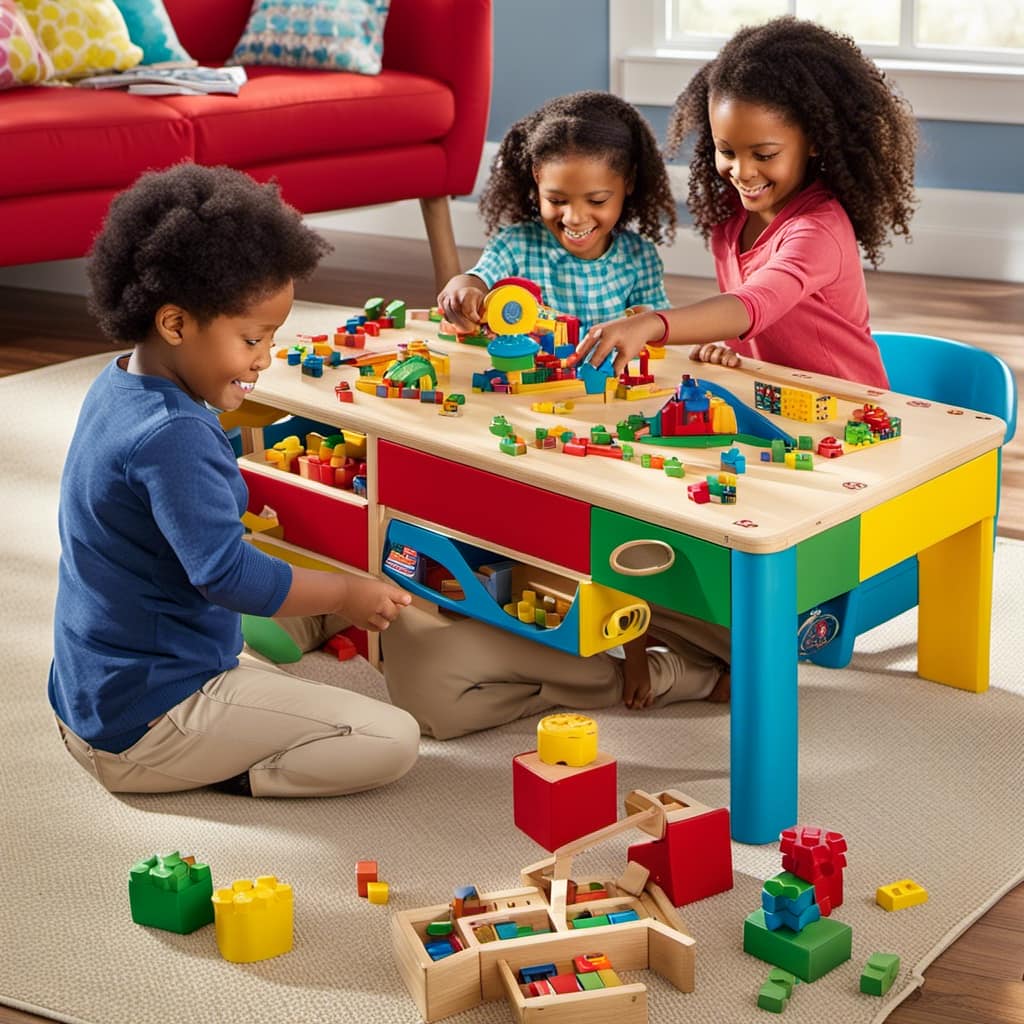
Unleashing Creativity: How Toy Play Sparks Imagination
Unleashing creativity, toy play sparks my imagination and allows me to explore new worlds and scenarios. It is a vital aspect of preschool education that goes beyond entertainment. Here are the ways in which toy play enhances learning and development:
-
Toy play and problem solving: Developing critical thinking skills. Through play, children encounter challenges and develop problem-solving abilities in a fun and interactive way.
-
Toy play and emotional intelligence: Fostering empathy and understanding. Role-playing with toys allows children to step into different perspectives, understand emotions, and develop empathy towards others.
-
Hands-on learning and creativity: Toys promote imaginative play, encouraging children to create their own stories and scenarios, enhancing their creativity and imagination.
-
Cognitive development: Toy play stimulates cognitive skills, including memory, attention, and spatial awareness, which are essential for academic success.
-
Social interaction: Playing with toys in groups promotes social skills such as sharing, turn-taking, and collaboration, enabling children to build meaningful relationships.
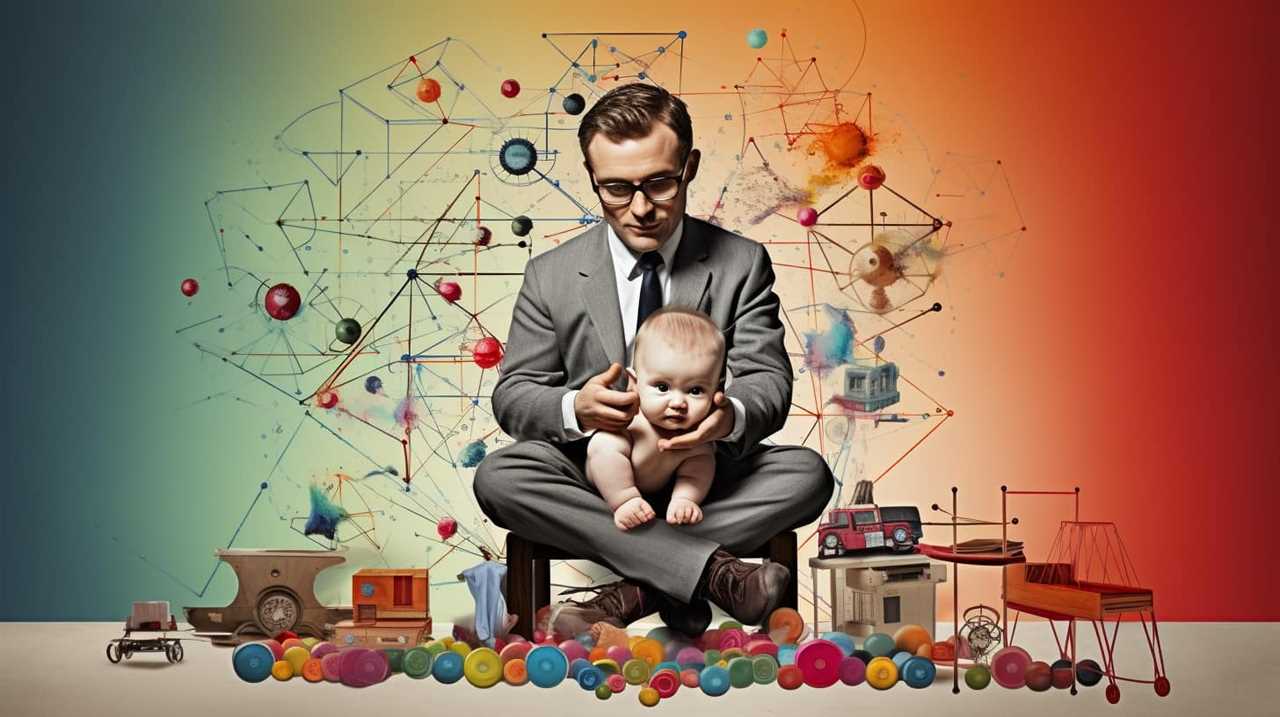
Incorporating toy play into preschool education is a powerful tool for enhancing learning, problem-solving, emotional intelligence, and creativity in young children.
Critical Thinking: Developing Analytical Skills Through Toy Play
When I engage in toy play, I develop critical thinking skills and enhance my analytical abilities. Toy play not only provides enjoyment but also fosters cognitive development, particularly in the area of problem-solving.
By engaging with toys, I am challenged to think critically and find solutions to various challenges and puzzles. This process encourages analytical thinking in problem-solving and helps me develop essential critical reasoning skills.
Through toy play, I learn to analyze different situations, evaluate options, and make informed decisions. This type of play-based learning promotes a growth mindset and prepares me for future academic and personal success.
Play for Success: The Positive Impact of Toy Play on Academic and Personal Growth
Engaging with toys has a positive impact on my academic and personal growth, fostering critical thinking skills, creativity, and problem-solving abilities.
- Toy play enhances academic achievement by promoting hands-on learning and cognitive development.
- It stimulates creativity and imagination, allowing for innovative thinking and unique solutions.
- By playing with toys, I develop problem-solving skills, learning to approach challenges with a strategic mindset.
- Toy play also fosters adaptability and resilience, as I encounter different scenarios and find ways to overcome obstacles.
- Additionally, engaging with toys promotes personal growth by nurturing social and emotional skills, such as empathy and cooperation.
Research shows that toy play not only provides enjoyment but also contributes to holistic development. By actively involving myself in play, I enhance my academic achievements and personal growth, setting a foundation for lifelong learning and success.
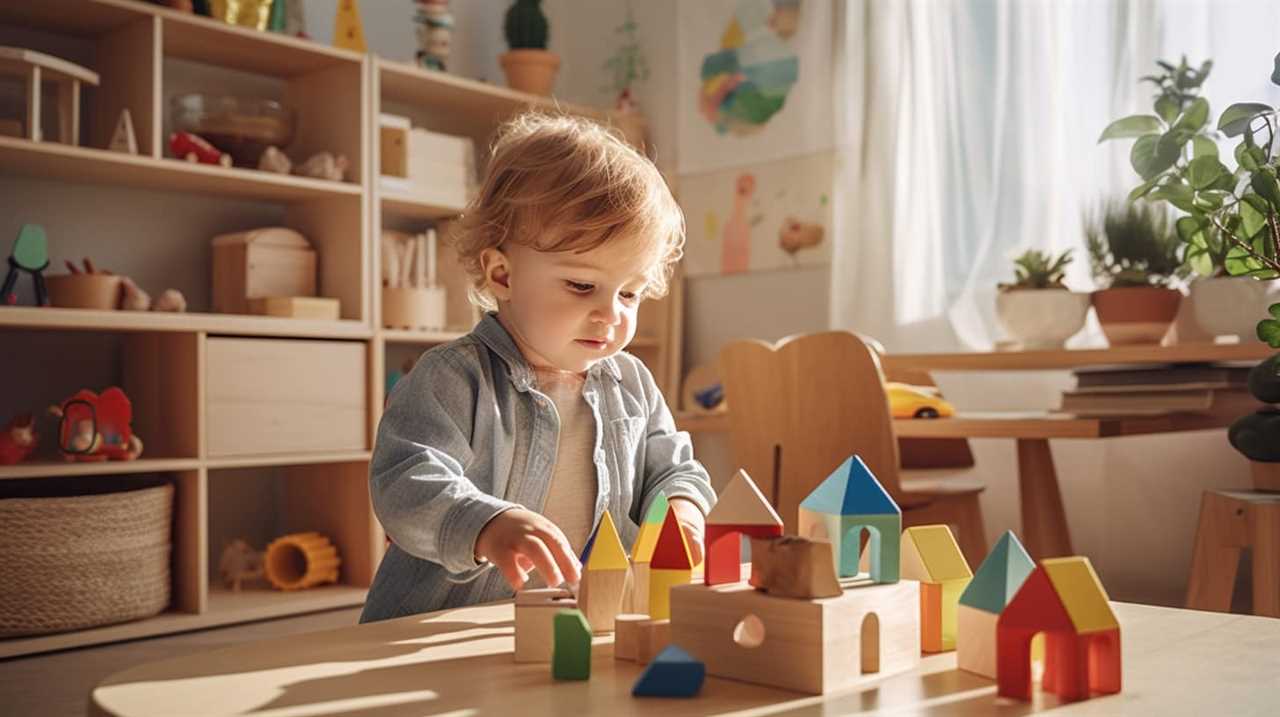
Choosing the Right Toys: Understanding Materials and Safety Standards
As a parent, I prioritize understanding toy materials and safety standards when selecting toys for my child’s playtime. It is crucial to ensure that the toys are safe and free from harmful substances or choking hazards. By adhering to toy safety standards, we can create a safe environment for our children to explore and learn. Sensory play, in particular, has numerous benefits for their development. It engages their senses and enhances cognitive skills such as problem-solving, hand-eye coordination, and fine motor skills. To make informed choices, it is important to understand the materials used in toy manufacturing. Here is a table that provides an overview of different toy materials and their impact on child development:
| Toy Material | Impact on Child Development |
|---|---|
| Wood | Promotes sensory development, problem-solving skills, and fine motor skills |
| Plastic | Provides durability and longevity, withstands wear and tear |
| Fabric | Enhances tactile exploration, sensory development, and imaginative play |
| Metal | Strengthens hand and finger muscles, promotes fine motor skills |
| Rubber | Improves grip and coordination, supports sensory development |
Fine Motor Fun: Developing Dexterity Through Toy Play
I love watching my child’s dexterity improve as they engage with different toys. Toy play benefits preschool development by enhancing fine motor skills and coordination.
Here are five ways toy play can support the development of dexterity:
-
Manipulating small objects: Toys like building blocks and puzzles require precise hand movements and finger control, strengthening hand and finger muscles.
-
Grasping and gripping: Playing with toys that require grasping and gripping, such as play dough or threading beads, helps improve coordination and dexterity.
-
Using tools: Toys that involve using tools, like pouring water or using tongs, promote the development of fine motor skills.
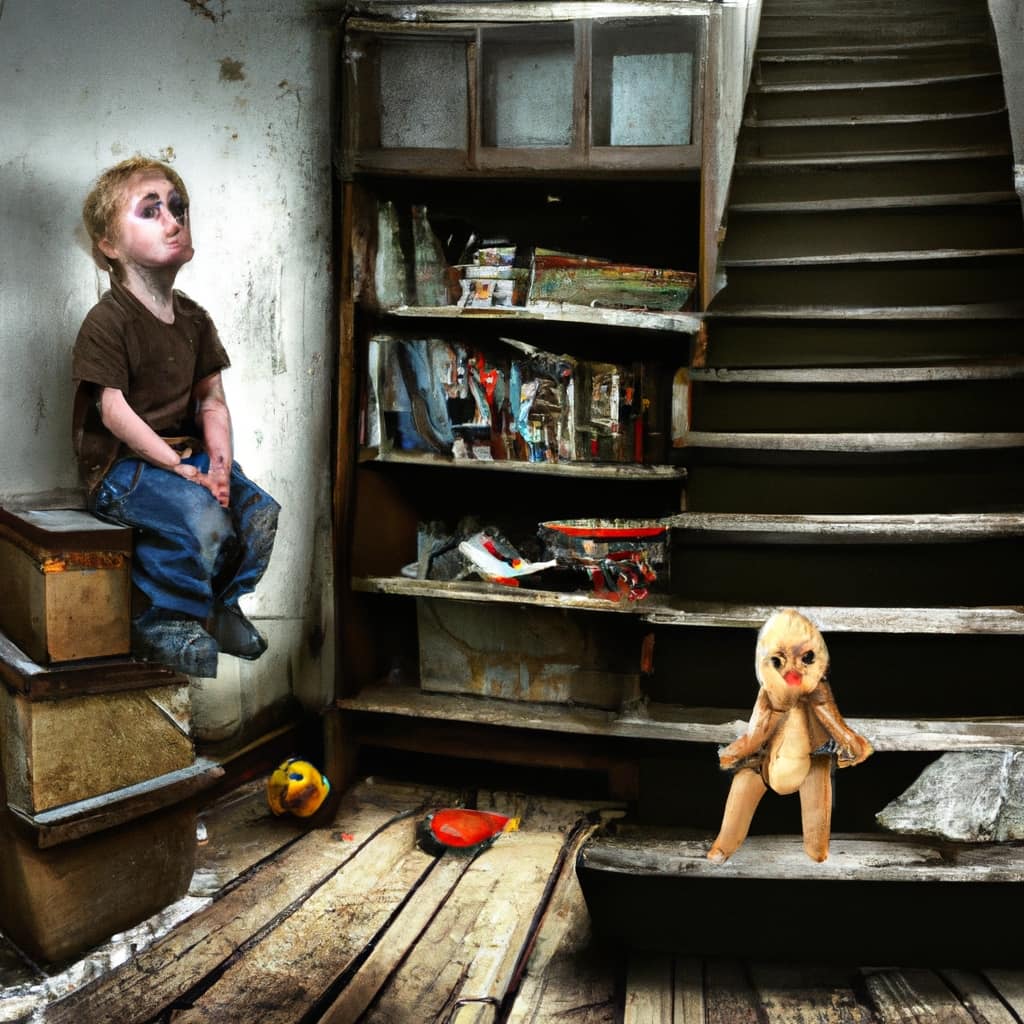
-
Hand-eye coordination: Many toys, such as ball games or stacking toys, require hand-eye coordination, honing the ability to synchronize hand movements with visual input.
-
Different textures: Toys with various textures provide sensory experiences that stimulate the development of fine motor skills.
Building Social Skills: The Role of Toy Play in Emotional Development
Observing my child’s interactions with toys, I’ve noticed how they role-play and use their imagination to understand different perspectives and develop empathy. This type of play is crucial for their social and emotional development.
Role-playing allows children to put themselves in someone else’s shoes, promoting empathy and understanding. Through pretending to be different characters, they learn to recognize and express different emotions. This enhances their emotional intelligence and helps them build meaningful relationships with others.
Toy play also teaches important social skills such as turn-taking, sharing, and collaboration. By engaging in cooperative games, children learn to work together and communicate effectively.
Overall, toy play is an effective tool for developing social and emotional skills, fostering empathy, and building strong relationships with others.
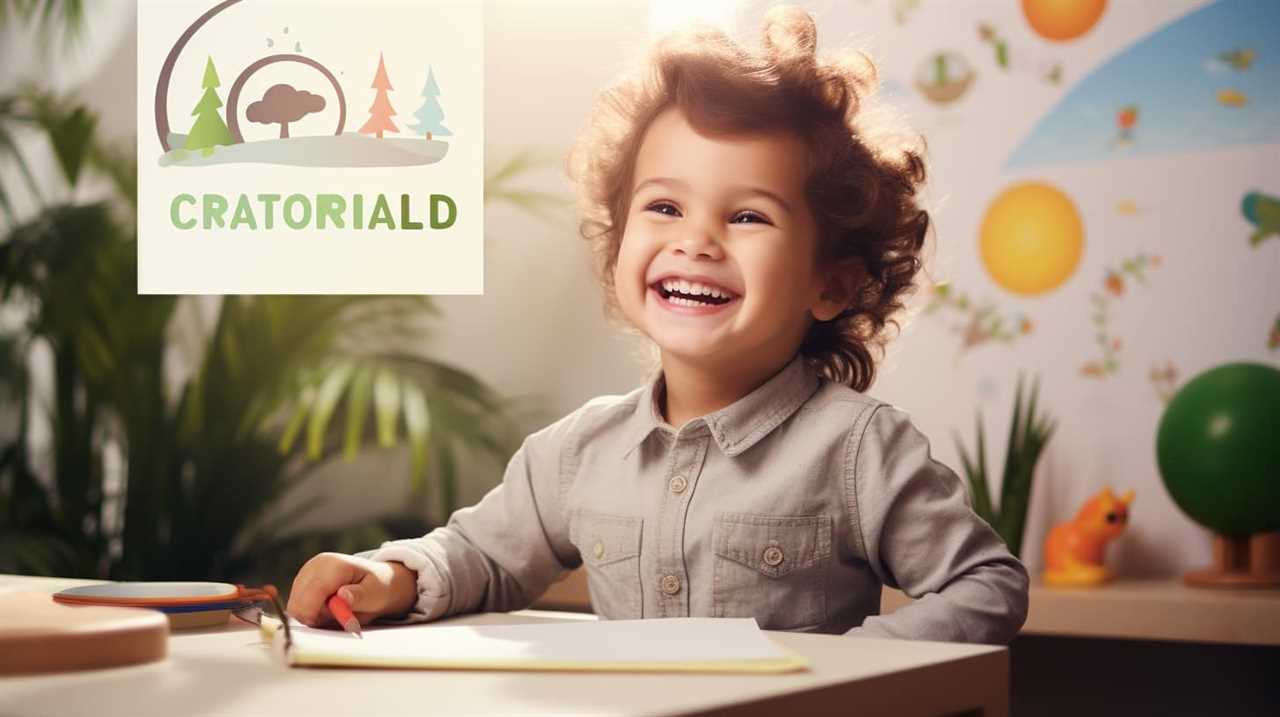
Empathy and Cooperation: Fostering Social and Emotional Growth Through Toy Play
As we have discussed the importance of toy play in emotional development, it is crucial to explore how toy play can specifically foster empathy and cooperation in preschoolers. Engaging in empathy-building activities and cooperative play has numerous benefits for a child’s social and emotional growth.
Here are five ways in which toy play promotes empathy and cooperation:
- Role-playing scenarios allow children to understand different perspectives and develop empathy towards others.
- Cooperative games teach essential skills like turn-taking, sharing, and collaboration.
- Toys depicting various emotions help children recognize and understand different feelings, enhancing their emotional intelligence.
- Through toy play, children can develop a sense of empathy towards others by putting themselves in someone else’s shoes.
- Engaging in cooperative play with peers helps children build meaningful relationships and develop crucial social skills.
Frequently Asked Questions
What Are Some Common Manufacturing Techniques Used for Making Toys?
Some common manufacturing techniques used for making toys include molding techniques and assembly methods. These techniques are crucial in creating safe and durable toys that promote children’s development and play experiences.
What Are the Safety Standards That Toys Should Meet to Ensure Child’s Well-Being?
Toy Safety Standards are crucial for ensuring a child’s well-being. They include measures to prevent choking hazards, toxic chemicals, and harmful substances. Understanding the importance of toy safety helps make informed choices for a child’s playtime.
How Can Everyday Objects Be Used to Enhance Fine Motor Skills in Preschoolers?
Using household items for sensory play and creative ways to incorporate everyday objects into fine motor activities for preschoolers are effective strategies for enhancing their fine motor skills and promoting development.
How Does Role-Playing With Toys Help Children Develop Empathy?
Role-playing with toys helps develop empathy by allowing children to step into different perspectives and understand others’ feelings. Benefits of imaginative play in preschool education include fostering empathy and promoting social-emotional development.

What Are Some Examples of Cooperative Games That Can Teach Turn-Taking and Collaboration Skills?
Cooperative games, like board games and team sports, teach turn-taking and collaboration skills, fostering social development. These benefits contribute to the overall importance of toy play in developing social skills and building meaningful relationships.
Conclusion
In conclusion, toy play in preschool education offers a plethora of benefits for children’s learning and development.
Through hands-on engagement with toys, children enhance their problem-solving skills, spatial abilities, and creativity.
Toy play also fosters critical thinking and analytical skills, while promoting the use of safe and developmentally appropriate materials.
Additionally, it helps children develop fine motor skills and supports their social and emotional growth by encouraging role-playing, cooperation, and empathy.
Ultimately, incorporating toy play into preschool education creates an enriching and engaging environment that promotes holistic development.


